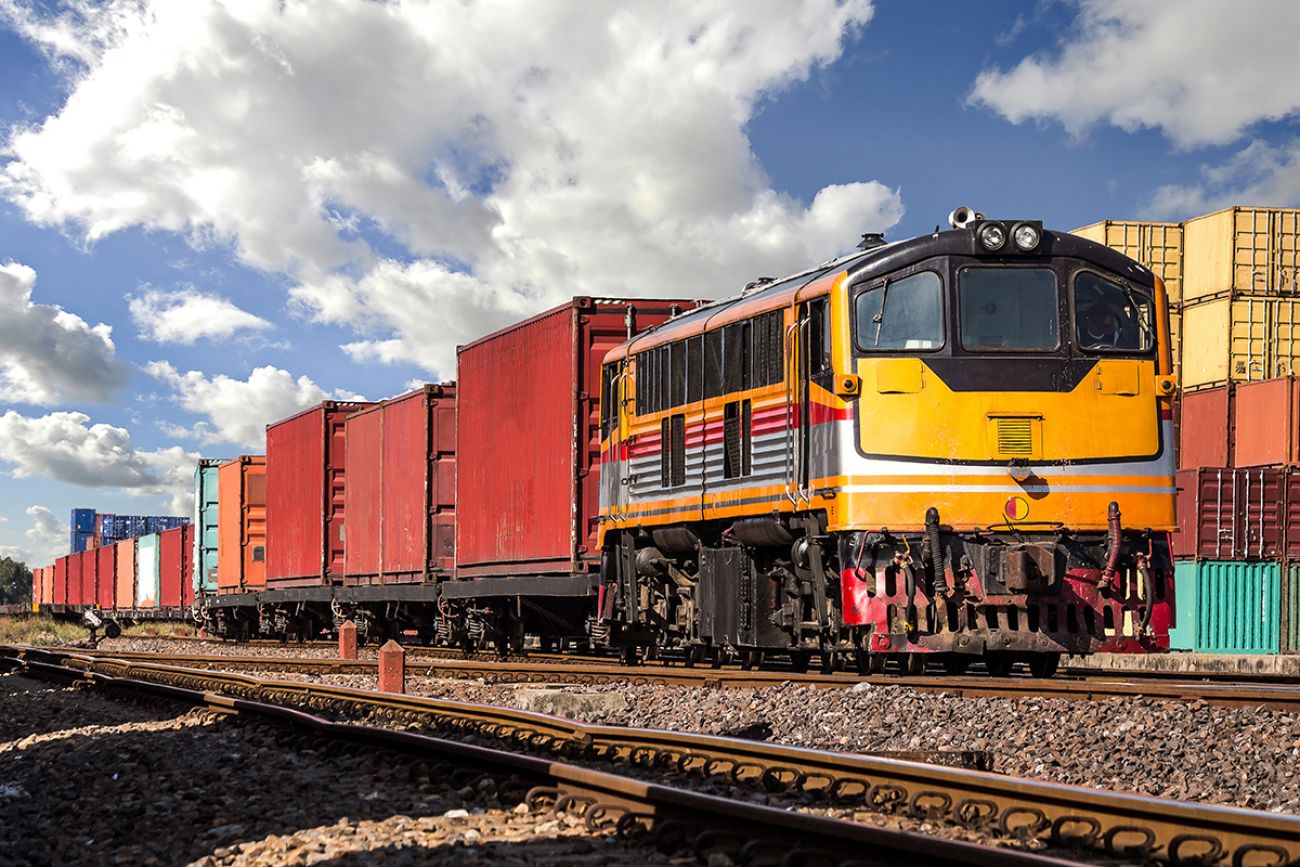U.S. railroad shutdown would leave 20 percent of Michigan freight stranded

- Two of the nation’s freight rail unions say they could strike as of one minute after midnight on Friday.
- Closing the nation’s rail would drastically impact businesses across Michigan, including automotive and agriculture.
- Federal leaders are involved in discussions between the unions and railroads.
Nov. 29: Michigan business hopeful as Congress poised to end rail strike threat
Michigan businesses depending on the nation’s railways to transport their supplies and products are bracing for a potential U.S. freight rail workers’ strike as the Friday deadline to reach a compromise nears.
According to the Association of American Railroads, the economic fallout from a strike could reach $2 billion per day, affecting about one-third of all goods in the U.S. and compounding years-long supply chain bottlenecks.
A freight train strike would halt the movement of raw materials for manufacturing and products headed to consumers, including coal — used for about 32 percent of Michigan’s electricity — and the chlorine used in wastewater treatment plants.
Related:
- Michigan’s residential real estate market cooling after record extremes
- Michigan invests $5M to turn 3 properties into 'build-ready' mega sites
- Rising costs make for rough roads for Michigan’s independent truckers
Trains carry about 90 million tons of cargo annually in Michigan, representing 20 percent of all freight entering and shipping from the state. Autos, agricultural products and almost half of the chemicals and iron ore transported here travel on the state’s 1,350-mile rail network.
Rail is “indispensable” to Michigan business, said John Dulmes, executive director of the Michigan Chemistry Council. The group advocates for 80,000 industry employees, ranging from distributors to manufacturers.

Dulmes sent a letter on Tuesday to Sen. Gary Peters, asking Congress to act “to avoid potentially devastating consequences to Michigan businesses and consumers.”
According to reports, President Joe Biden has been in contact with union and railroad officials while others in the administration — including U.S. Labor Secretary Marty Walsh — also are trying to resolve the situation. In July, Biden blocked a strike by about 115,000 workers when he issued an order forcing workers and railroads to take 60 days to try to reach a compromise.
That order expires at 12:01 a.m. Friday. If it passes without an agreement, workers will be able to strike, and railroads can order a lockout.
Even as Friday’s deadline looms, some businesses that make or use chemicals and gasses in Michigan began dealing with a shutdown, Dulmes said. The nation’s top rail carriers this week halted the shipment of hazardous chemicals to ensure they’re not sitting unattended on rail cars if a strike is called.
“That means it's already having an impact,” he said.
Amtrak also cut long-distance routes so passengers in its trains — which operate on the freight lines — will not be stranded by a work stoppage.
The strike has been brewing for over three years while the 12 unions representing the national freight rail workers negotiated their contracts. Ten of the 12 rail unions agreed to new contracts by early Tuesday, when the National Conference of Firemen and Oilers reached a deal.
Two remaining unions — the Brotherhood of Locomotive Engineers and Trainmen and the SMART Transportation Division, representing conductors — said their contract offers did not address quality of life concerns, including revising attendance policies to allow sick days for their combined 57,000 members.
Workforce shortages weigh on workers, reduce quality and limit options.
Another issue is the ongoing workforce shortage, which prompted the rail lines to put employees on call for 12 hours a day when they are not scheduled to work.
“These employment policies have forced thousands of employees out of the industry and make it all but impossible to recruit new workers,” according to a joint statement from the two unions.
The rail unions’ concerns about working hours, staffing and overtime are similar to those raised in other recent strikes, including those at John Deere and Frito-Lay.
Workers at The Kellogg Company of Battle Creek went on strike for 11 weeks at the end of 2021 after complaining about mandatory overtime due to lack of staff. The company’s cereal revenue hadn’t recovered by the end of the second quarter of this year, the company said.
According to recent data, the U.S. unemployment rate is 3.5 percent. However, the labor force participation rate is 62.1 percent, compared to 63.4 percent just before the pandemic.
The freight rail-worker shortage has also led to a drop in rail quality and reliability, adding to supply chain frustrations for businesses, the Chemistry Council’s Dulmes said.
“They have been forced to overwork their employees; they can't keep their service up as a result,” he said. “So, it's not a good situation for anybody.”
The drop in available workers also has been apparent in the trucking industry.
Shortages contributed to supply slowdowns during the height of the pandemic, when shipments of products like autos, appliances and home building materials were delayed.
Turning to trucks to move more products won’t be an option if freight rail workers strike, said Brian Long, director of supply management research at Grand Valley State University.
“Truck shipments are already at capacity,” Long told Bridge. “The trucks are not available, and we’re lacking drivers.”
Moreover, 75 percent of all finished automobiles also are moved by rail, leaving the state’s automotive industry particularly vulnerable to a strike, according to the Michigan Railroads Association, a trade group for the state’s freight rail industry.
Long said some companies may have stockpiled components to keep up production during a disruption, but auto factories in Michigan are still shipping as much as 80 percent of their finished vehicles by rail.
Although many companies are not disclosing details about how they’re preparing for the possible strike, Dulmes said he’s definitely hearing concern from them.
“They’re basically trying to ensure that they can keep going.”
Business Watch
Covering the intersection of business and policy, and informing Michigan employers and workers on the long road back from coronavirus.
- About Business Watch
- Subscribe
- Share tips and questions with Bridge Business Editor Paula Gardner
Thanks to our Business Watch sponsors.
Support Bridge's nonprofit civic journalism. Donate today.
See what new members are saying about why they donated to Bridge Michigan:
- “In order for this information to be accurate and unbiased it must be underwritten by its readers, not by special interests.” - Larry S.
- “Not many other media sources report on the topics Bridge does.” - Susan B.
- “Your journalism is outstanding and rare these days.” - Mark S.
If you want to ensure the future of nonpartisan, nonprofit Michigan journalism, please become a member today. You, too, will be asked why you donated and maybe we'll feature your quote next time!




